The Complete Guide to Halal Cava: Taste, Certification, and Where to Buy
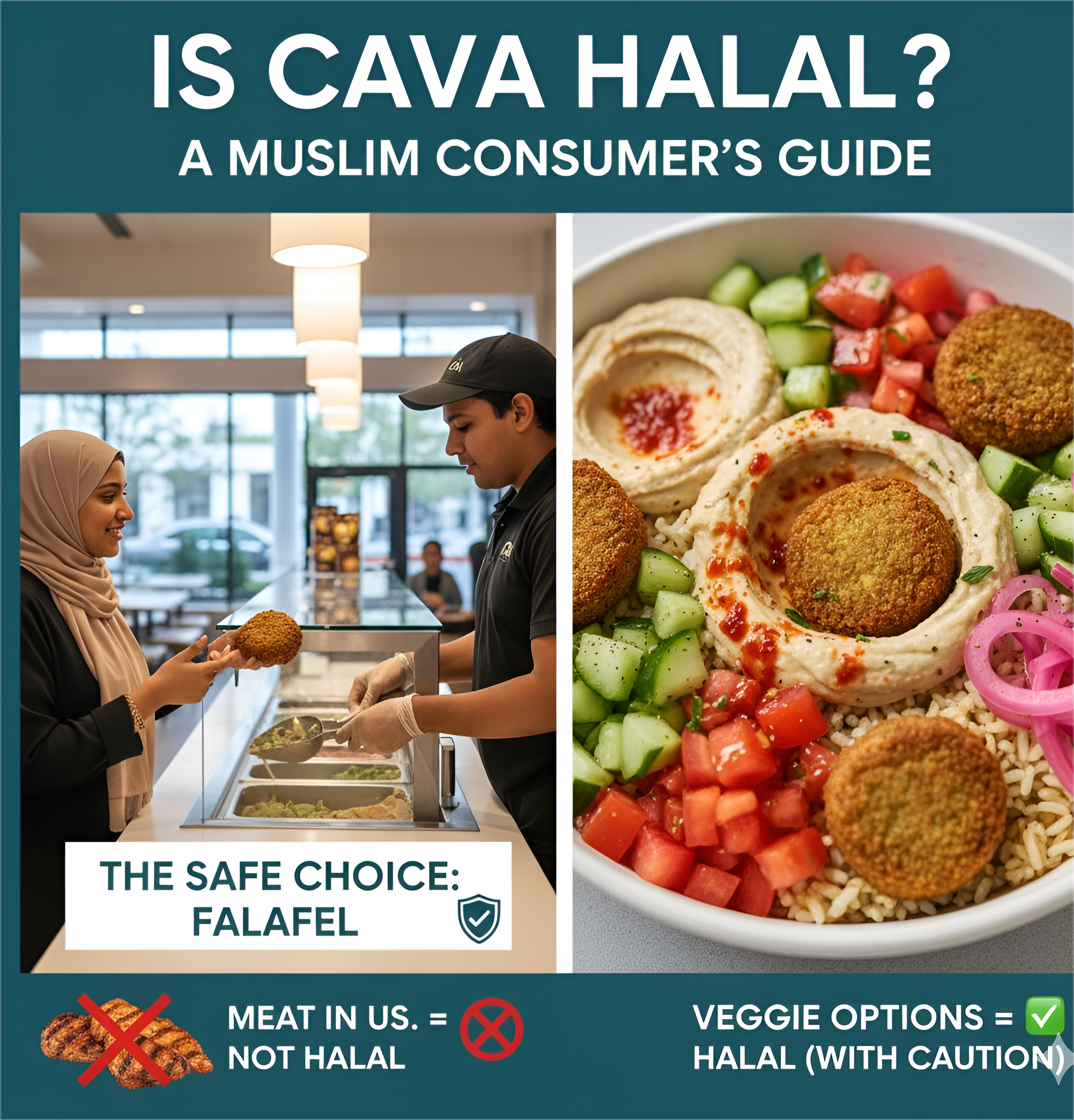
Is Cava Halal? An Exhaustive Inquiry for the Muslim Diner
Introduction: The Mediterranean Frenzy and the Halal Issue
In the new landscape of fast-casual eating, Cava has built a significant position, winning over foodies with its colorful, customizable, and healthy, Mediterranean-spiced bowls, pitas, and salads. From its founding, Cava has espoused a new, healthy way of eating, with a focus on quality ingredients, intense flavors, and a flexible, customizable experience that appeals to a wide audience eager for healthier and more compelling dining experiences. From a modest beginning as a single restaurant in Rockville, Maryland, Cava has grown explosively throughout the United States into a household name unified in its association with fresh, Mediterranean-style food.
Yet, for a crucial portion of its target market, namely Muslim consumers, the pleasure of consuming Cava’s products depends on a pivotal question: “Is Cava halal?”
The term “halal,” or “permissible” in Arabic, is at the heart of Islamic dietary law. It not only determines what may be consumed but how it should be prepared, from the acquisition of meat to sauce ingredients and cross-contamination prevention. As opposed to some other dietary prohibitions, halal is not primarily a question of health or taste but rather one of religious observance and spiritual cleanliness.
Determining the “is it halal?” question for a chain such as Cava is seldom easy. A careful review of their corporate practices, supply chain, ingredient sourcing, and food preparation must be done. Because Cava emphasizes the variety of proteins (chicken, lamb, meatballs, falafel) and numerous sauces and toppings, careful research is the only way for the Muslim customer to make an informed choice.
This article will be the ultimate guide for Muslims looking to dine at Cava for their next meal. We will cover the subtleties of halal food laws systemically, review Cava’s ingredient disclosure, examine the halal status of its different protein sources, review issues relating to cross-contamination, and finally offer a practical guide to diners who can comfortably approach the menu at Cava according to their religion.
Unpacking “Halal” – The Islamic Dietary System
In order to correctly evaluate Cava, we need to first establish clearly what “halal” is in the context of food consumption. Halal is an all-encompassing system taken from Islamic divine sources (the Qur’an and Sunnah) that encourages purity, wholesomeness, and right treatment along the entire chain of food production.
Key Principles of Halal:
- Forbidden Foods (Haram): There are foods which are absolutely prohibited (haram) in Islam. They include:
- Pork and Pork By-products: This is the best-known prohibition. Any product that comes from pigs (e.g., gelatin, lard, some emulsifiers) is strictly forbidden.
- Alcohol and Intoxicants: All alcoholic drinks and products containing alcohol (e.g., vanilla extract, cooking wines, some vinegars if not converted naturally) are forbidden.
- Blood: It is not permissible to consume blood, and that is why draining is essential for meat.
- Carnivorous Animals/Birds of Prey: Animals that kill using their claws or fangs (like lions, bears, eagles) are not permissible.
- Animals Slaughtered Improperly: Meat from animals which are not slaughtered in the manner of Zabihah is not permissible.
- Zabihah – The Technique of Meat and Poultry: The technique of slaughter (Zabihah) is the most important for meat to be halal. The main conditions, as discussed earlier (and highlighted again for completeness here), are:
- Slaughterer: A Muslim (or, in some schools of thought, a Christian or Jew) conducting the slaughter.
- Invocation: Saying \”$Bismillah, Allahu Akbar$\” (In the name of God, God is the Greatest) when slaughtering.
- Sharp Blade: A very sharp knife to reduce pain.
- Swift Cut: One, deep cut that cuts the trachea, esophagus, and jugular veins/carotid arteries and leaves the spinal cord intact.
- Draining of Blood: Verification of total and quick exsanguination of the animal.
- Humane Treatment: The animal should be treated with kindness prior to and at time of slaughtering.
- Cross-Contamination: Even though ingredients may be individually halal, they should not touch haram ingredients upon preparation, storage, or serving. It is a vital issue in multi-item kitchens.
- Halal Certification: As an added measure of assurance, independent Halal Certification Bodies inspect food manufacturers and restaurants to ensure adherence to these strict standards. A certificate issued by a well-respected body is the gold seal for Muslim consumers.
It is important to understand these principles in order to navigate any restaurant menu, particularly one as varied as Cava’s.
Cava’s Corporate Stance and Ingredient Sourcing
When assessing a large chain such as Cava, the initial area of inquiry is the corporate policy on halal sourcing. Does Cava have a company-wide requirement of halal certification for its proteins or other ingredients across all stores?
The Corporate Answer: No Universal Halal Policy
Cava, like most fast-casual chains in the U.S., lacks a corporate-wide initiative to solely use Zabihah halal-certified meats across all locations. Their main interest is in procuring high-quality, fresh ingredients to the highest culinary standards, usually giving preference to traits such as “antibiotic-free,” “humanely raised,” or “locally sourced” (where possible), which are not equal to “halal.”
That renders the default chicken, lamb, and meatballs that are found in the vast majority of Cava restaurants in the United States not Zabihah halal. They are supplied by conventional, industrial companies that do not follow Islamic slaughter practices.
Ingredient Transparency and Online Information:
Cava is usually open about their ingredients, providing extensive nutritional and allergen information on their website. This is excellent and convenient for many dietary requirements. Yet their ingredient lists do not usually indicate whether their meat proteins are halal. If the specific ingredient was somehow halal-certified, it would be nearly certain to be marketed accordingly. That such claims are absent is a pretty good guarantee that the default meat proteins are not halal.
Proteins on the Cava Menu and Whether They Are Halal:
- Grilled Chicken: Cava’s most sought-after meat protein is grilled chicken. As mentioned, default grilled chicken prepared in most locations in the U.S. is not Zabihah halal.
- Braised Lamb: The second most sought-after protein, braised lamb, is also not Zabihah halal by default in most locations in the U.S.
- Spicy Lamb Meatballs: These, too, are not Zabihah halal per se. Also, for the most rigorous application, meatballs also tend to contain breadcrumbs or binders, and ascertaining the origin of these ingredients (e.g., if they contain animal fats or alcohol-based flavorings) would be an added level of complexity, although typically secondary to the halal status of the meat.
- Falafel: This is the main vegetarian and vegan protein choice at Cava. Falafel, as it is composed of ground chickpeas and herbs, is naturally halal (and vegan/kosher) provided it is prepared using oil that has not been touched by non-halal meat items. This makes falafel an essential choice for Muslim eaters.
- Roasted Vegetables, Hummus, Dips, and Toppings: Most of Cava’s huge selection of vegetables, grains, legumes, and plant-based dips (such as hummus and roasted red pepper dip) are naturally halal (and frequently vegan). Such ingredients as feta cheese would require inspection for the use of animal rennet in a purely halal environment, but microbial rennet is used in most commercially sold cheeses and is acceptable. The main issue with such foods shifts to cross-contamination.
The Role of Regionality and Franchisees:
In contrast to Dave’s Hot Chicken, Cava mostly has company-owned locations, so there is less differentiation at the store level for protein sourcing. If Cava does happen to have halal meat, it would probably be a corporate push to do it across a region or system-wide, not something an individual franchisee would opt-in to do. Currently, there is no systemic corporate effort for halal meat in the U.S.
But as Cava goes international into Muslim countries (i.e., the Middle East), it would be obligated both legally and commercially to procure halal-certified proteins. And this is an important distinction: a Cava in Dubai would be halal by virtue, whereas a Cava in Dallas would not.
Managing the Non-Meat Options: The Cross-Contamination Puzzle
For Muslim customers, the best bet at Cava in non-halal areas will be their vegetarian/vegan options, mostly the falafel. Even with these options though, the issue of cross-contamination within a shared-kitchen environment is always top of mind.
Shared Cooking Surfaces and Utensils:
- Grills/Hot Line: Kitchens in Cava include a hot line where meatballs, lamb, and chicken tend to be grilled or kept warm. Should these foods be touched with the same utensils or on the same surfaces as vegetables or falafel, there is potential cross-contamination. Pieces of non-halal meat or juices might carry over.
- Shared Fryers: Although Cava’s falafel in most locations is baked or air-fried instead of being deep-fried, it is critical to verify this. If the falafel were indeed deep-fried and the same oil used to cook non-halal chicken, then the falafel would become non-halal.
Serving Lines and Scoops:
Cava’s distinctive assembly-line configuration, although effective, comes with inherent risks.
- Shared Scoops: The same scoops and tongs as those serving non-halal chicken, lamb, or meatballs can be used accidentally for falafel, rice, or roasted vegetables. Even a small trace of non-halal meat or residual from a scoop will be problematic to those following strict halal requirements.
- Splatter: In peak periods, ingredients spill or splatter from one station to the next, causing unintentional mixing.
Sauces and Dressings:
Cava has an extensive list of tasty dressings and sauces. Most of them are probably plant-based and thus naturally acceptable, but two possibilities for concern are:
- Alcohol in Extracts/Vinegars: Certain dressings or sauces may include trace amounts of alcohol as a carrier for flavor extracts or from manufacturing vinegar. Most scholars deem trace presence of naturally occurring or denatured alcohol in food acceptable, but stricter interpretations exclude it. Checking Cava’s online ingredient lists for explicit alcohol content is possible, although it is seldom stated for trace presence.
- Dairy-Based Dips: Dairy-based dips such as “Tzatziki” would normally include yogurt. The biggest issue with dairy in a halal situation is most often rennet in cheese (something Tzatziki does not normally contain) or gelatin (something not normally found in Tzatziki).
Mitigating Cross-Contamination Risks:
For the Muslim diner who chooses to avoid meat, knowledge and dialogue are important:
- Order First: Ordering when the restaurant is not as crowded and requesting to be served first on a newly set-up line can minimize risks.
- Ask for Fresh Utensils/Gloves: Request politely that the staff use new gloves and fresh scoops for your order, particularly for the falafel and other toppings.
- Observe: Look at how employees are transferring items on the line. If you notice them putting chicken in the same scoop and then using it immediately for falafel, you need to say something.
- Keep it Simple: If you only use very simple, inherently halal ingredients (rice, falafel, vegetables, hummus), complexity and chance for contamination decrease.
Case Studies – Regional Variations (U.S. vs. International)
The halal nature of Cava is best demonstrated by comparing its activities in the United States with its actual or possible activities in Muslim-majority areas.
Cava in the United States: Largely Non-Halal Meat
As concluded, Cava’s default meat proteins (lamb, chicken, meatballs) in the United States are not Zabihah halal. Hence, for a Muslim consumer looking for halal meat, Cava in the United States would not be considered if they do not go out of their way to obtain the vegetarian/vegan options and tread cross-contamination carefully.
It should be remembered that consumers must not mix up “healthy” or “fresh” with “halal.” While Cava is great in the former, this does not necessarily mean the latter.
Cava in Muslim-Majority Countries (e.g., Middle East): Halal by Regulatory Mandate
If Cava were to open up in nations such as the United Arab Emirates, Saudi Arabia, or Qatar (which is very likely considering the area’s affinity for Mediterranean cuisine), its business model would have to be completely different. In those nations:
- Legal Mandate: All public meat consumed must be halal-certified by government-approved agencies. This is a strict legal and cultural requirement.
- Supply Chain Adjustment: Cava would need to implement a completely halal-compliant supply chain, utilizing chicken, lamb, and all other meat proteins from Zabihah halal slaughterhouses and processing them under halal procedures.
- Cross-Contamination Controls: Although operational details would differ, the whole kitchen environment would typically be presumed to be halal-compliant, keeping cross-contamination issues at a minimum between products.
Thus, a Cava in the U.S. and a Cava in Dubai, for example, would be functioning under essentially different halal paradigms. This geographic difference is all-important for Muslim expats and travelers.
Making an Informed Decision – Your Practical Guide for Cava
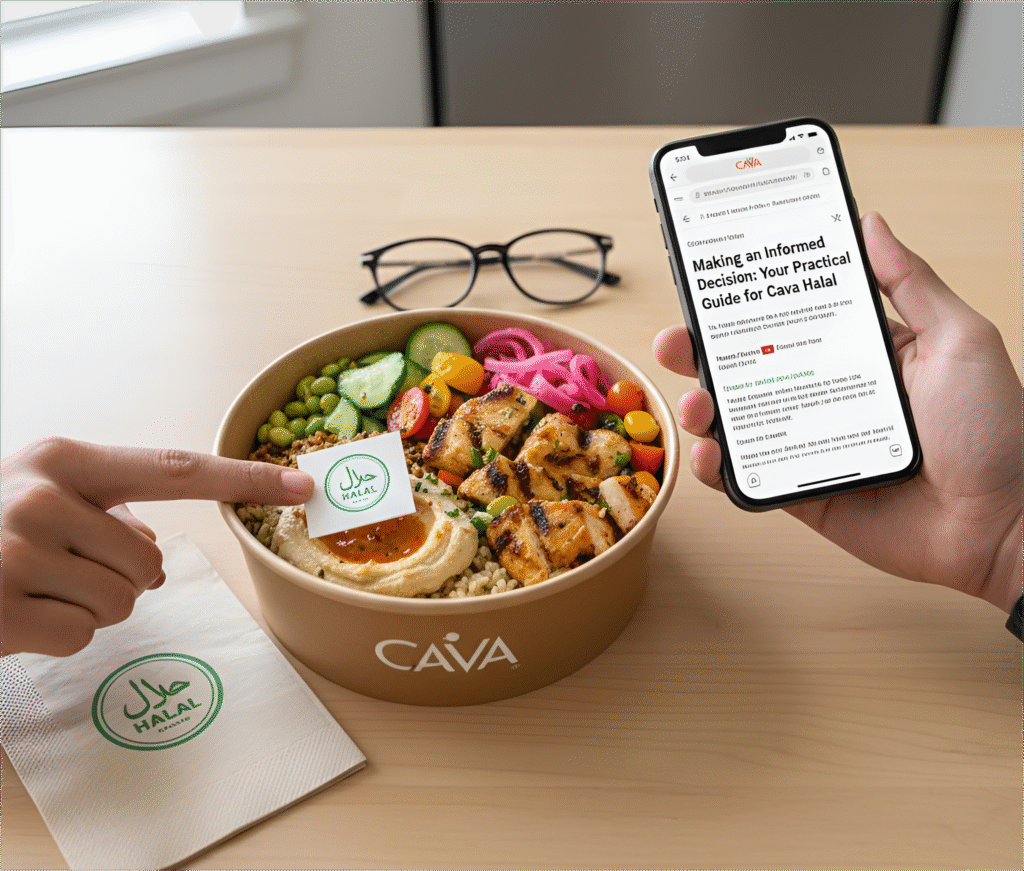
With Cava’s current business model in the U.S., this is a practical guide for Muslim consumers:
Option 1: The Safest Bet (No Meat, Maximum Caution)
- Choose Falafel: This is the most naturally halal protein alternative, as it’s vegetarian.
- Ask for Clean Utensils and Gloves: When you order, excuse yourself and ask the staff to change their gloves and use clean scoops to serve your falafel, rice, and vegetable toppings to you. Tell them you have a dietary requirement (you can just say “for religious dietary reasons” or “I only eat vegetarian/vegan food that hasn’t come into contact with meat”).
- Select Plant-Based Dips and Dressings: Opt for hummus, roasted red pepper dip, red pepper vinaigrette, etc., which are obviously vegan/vegetarian. Steer clear of any sauce based in dairy if you are worried about animal rennet in cheese (although most contemporary Cava Feta is microbial rennet).
- Watch the Line: Keep an eye on as your bowl is made. If you notice any cross-contamination, kindly bring it to their attention and request a new start.
- Be Prepared to Leave: If you cannot get clear answers, observe significant cross-contamination, or feel uncomfortable with the preparation, be prepared to respectfully decline your order and choose another dining option.
Option 2: Moderate Comfort (Vegetarian/Vegan with Less Stringent Cross-Contamination Avoidance)
This approach is for individuals who are comfortable with minor levels of incidental cross-contact, as long as no actual non-halal meat is consumed.
- Emphasize the falafel and an expansive menu of vegetarian toppings.
- You may not necessarily request fresh gloves or equipment if the line is not too busy and there is little visible cross-contamination.
- Continue avoiding the meat proteins altogether.
Option 3: Not Recommended for Halal Meat Eaters in the U.S. - Do not assume that chicken, lamb, or meatballs are halal in U.S. restaurants unless a particular restaurant clearly advertises and offers certification (which is extremely uncommon, if not non-existent, for Cava in the U.S.).
What to Ask the Staff (If You Need to):
- “Is your falafel fried in a dedicated fryer from the chicken/meat?” (If deep-fried, which is not Cava’s policy for falafel, but good to know).
- “Do you have separate serving utensils for the falafel and the meat?”
- “Are your dips/dressings vegetarian/vegan?” (This addresses the overall concern, though Cava’s website does have complete ingredient information).
Cava’s Commitment to Dietary Needs:
Cava is generally very accommodating to various dietary restrictions (gluten-free, vegan, allergies). This positive aspect can be leveraged by Muslim diners. By framing your request for fresh utensils/gloves as a “religious dietary restriction” or “allergy to meat,” staff are often trained to be helpful and understanding.
Conclusion: A Fresh Approach to a Complex Question
Is Cava halal? For the United States Muslim consumer, the response to its meat proteins is no. The regular chicken, lamb, and meatballs are not procured as Zabihah halal.
Cava does, however, provide a healthy and tasty set of plant-based foods, in particular its falafel, fresh produce, grains, and dips, which are naturally halal. The challenge then becomes one of avoiding cross-contamination in a hectic fast-casual kitchen.
Cava represents the contemporary dining model: fresh, flexible, and growing fast. As the number of Muslims globally increases and their food options become more sophisticated, pressure for conveniently available halal meals will only grow. Chains such as Cava, with their focus on fresh ingredients and open communication, are best placed to respond to this demand, if they decide to implement widespread halal meat sourcing in applicable markets.
Until that time, Muslim consumers in the U.S. may continue to enjoy Cava through making informed decisions: emphasizing the inherently halal falafel and carefully expressing their requirement of avoiding cross-contamination. A little planning and respectful communication can make Cava still a lively and fulfilling dining experience, permitting faith and contemporary culinary pleasure to go together.
For mor elike this visit : Hilalinfohub
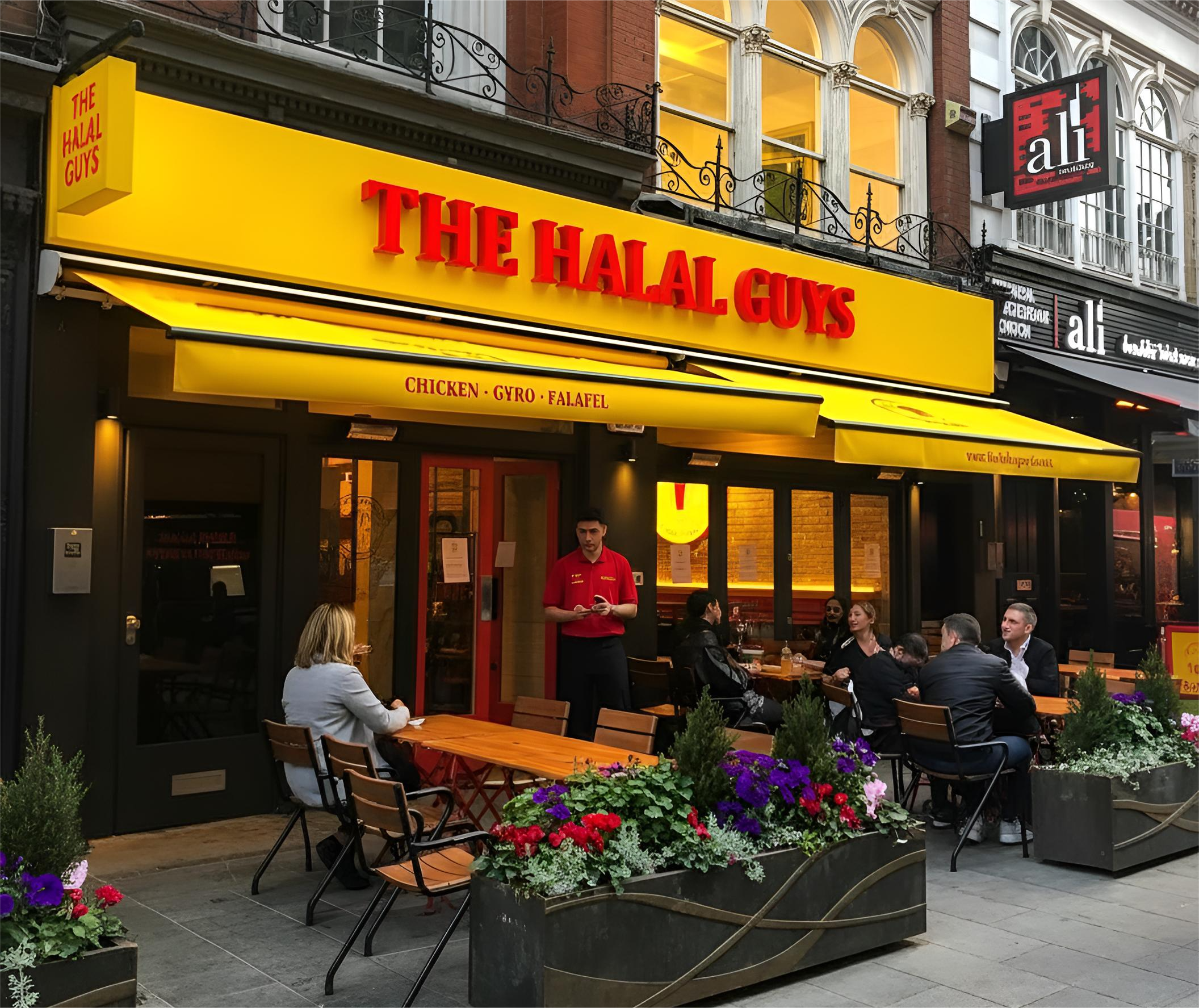
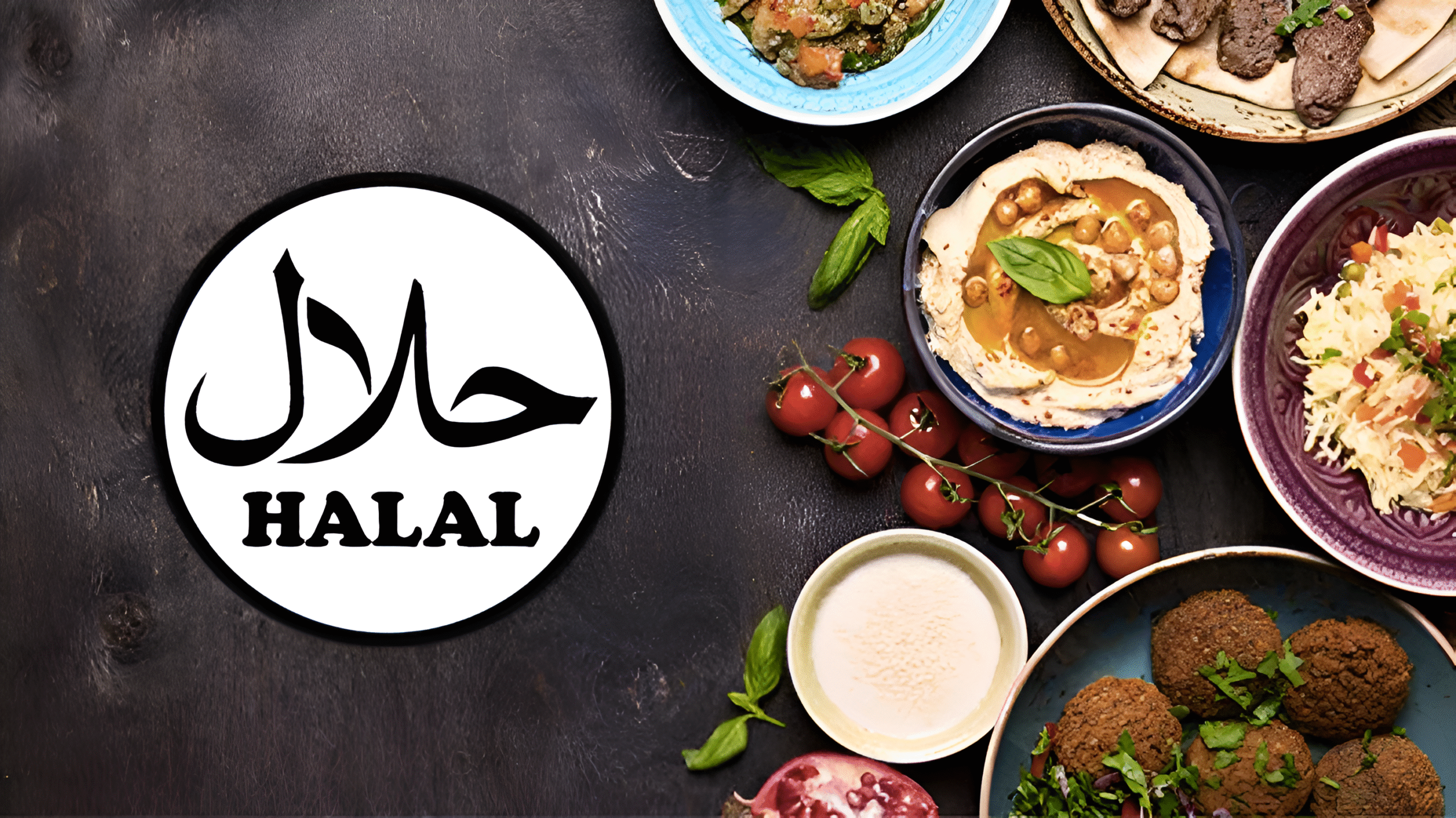
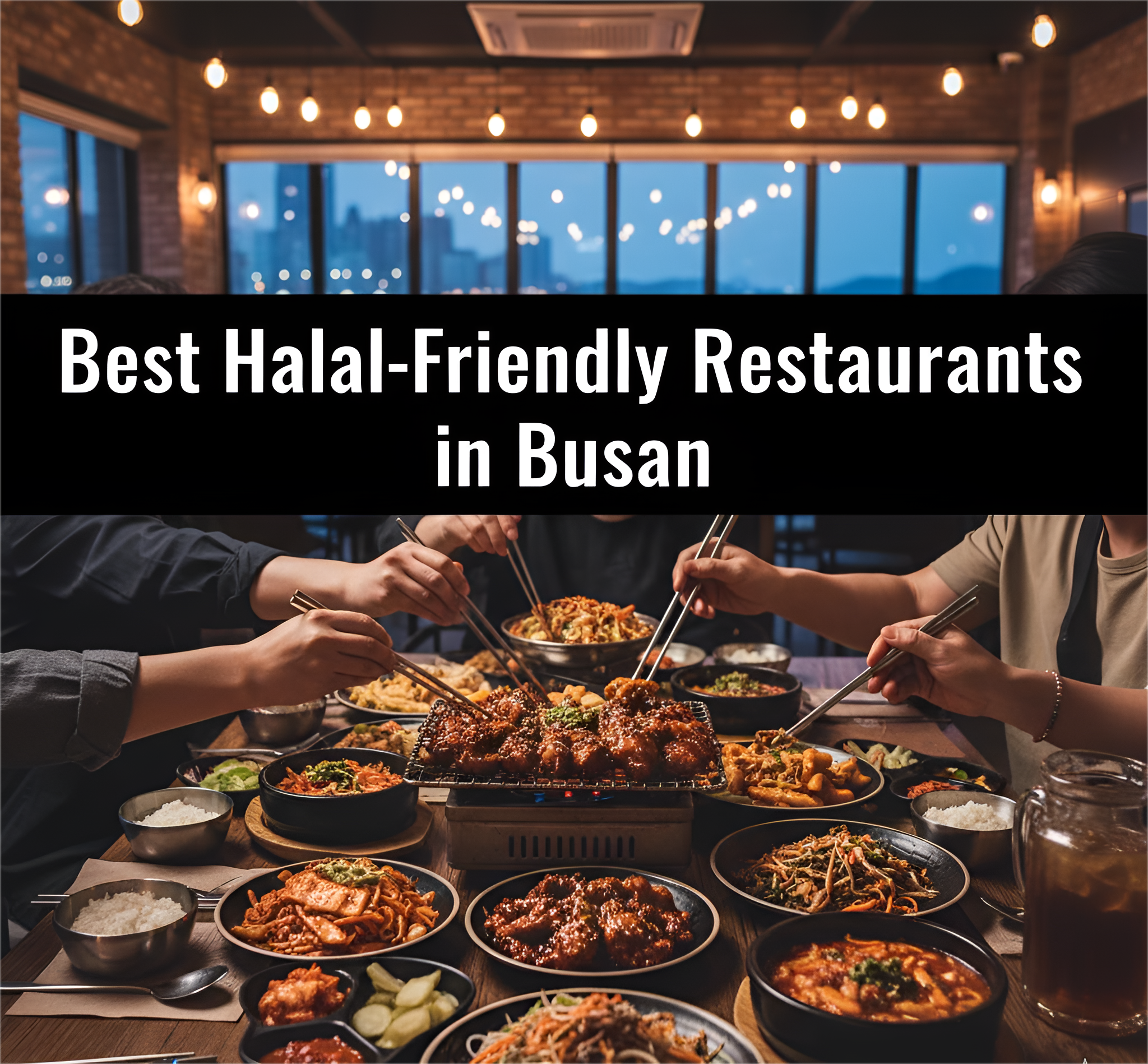
Post Comment